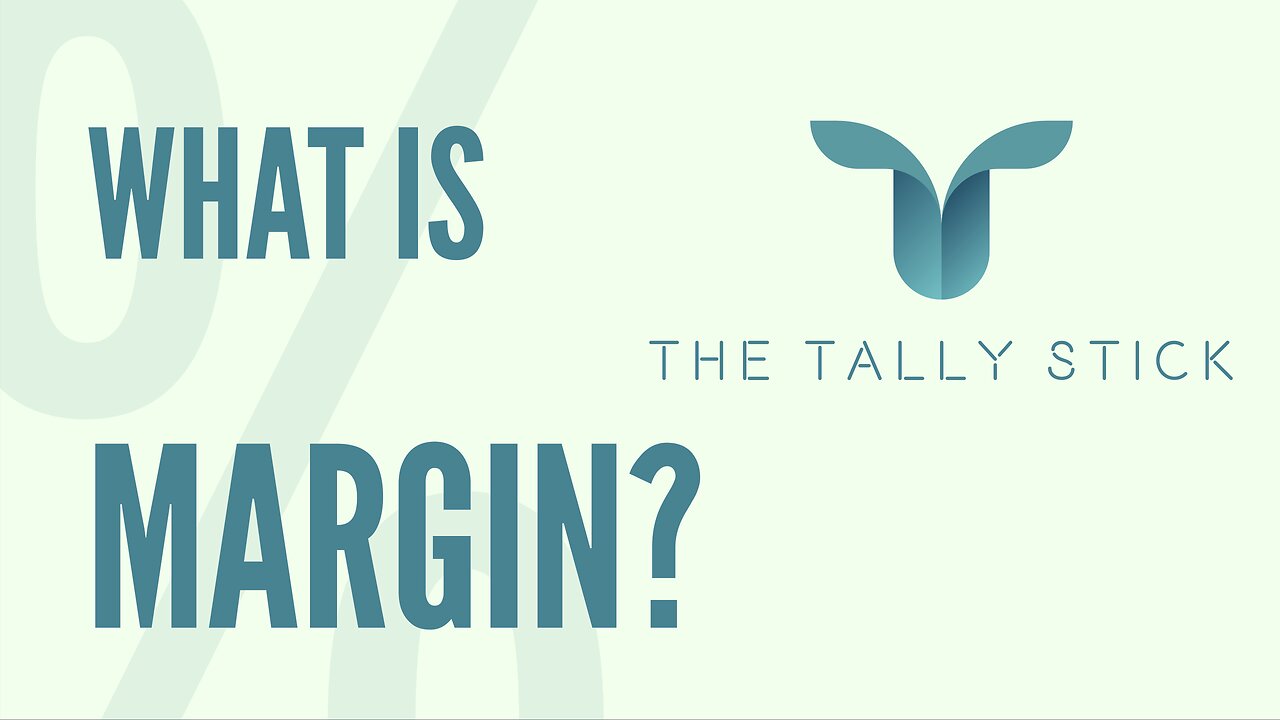Premium Only Content

Margin
Margin in trading refers to the practice of borrowing money from a broker, bank, or exchange to purchase stocks or other securities. Margin trading allows investors to buy more stock than their cash balance would normally permit by borrowing. This leverage can significantly increase both gains and losses. Investors with margin must maintain a minimum margin requirement; falling below this can trigger a margin call. During a margin call, one must deposit more funds or sell investments to cover the shortfall, or the lender might forcibly sell assets from the account.
Because using margin is a form of borrowing money it comes with costs, and marginable securities in the account are collateral. The primary cost is the interest you have to pay on your loan. The interest charges are applied to your account unless you decide to make payments. Over time, your debt level increases as interest charges accrue against you. As debt increases, the interest charges increase, and so on. Therefore, buying on margin is mainly used for short-term investments. The longer you hold an investment, the greater the return that is needed to break even. If you hold an investment on margin for a long period of time, the odds that you will make a profit are stacked against you.
-
 2:35
2:35
Mrgunsngear
20 hours ago $2.34 earnedFrying Pan As Improvised Body Armor?
52.1K20 -
 9:07
9:07
Silver Dragons
19 hours agoThis GOLD REVALUATION Will Change Everything
49.5K8 -
 9:16
9:16
MudandMunitions
19 hours agoGriffin Armament 3x Prism Optic Unboxing and First Impressions! The Ultimate Tactical Upgrade
30.8K1 -
 6:01
6:01
John Crump News
19 hours ago $0.70 earnedGOA vs. Philly: The Fight Starts!
25.9K3 -
 3:03:35
3:03:35
TimcastIRL
14 hours agoTrump Just FIRED OVER 6,700 IRS Agents In PURGE, Democrats SOMEHOW Angry w/Chloe Cole | Timcast IRL
229K360 -
 1:39:48
1:39:48
Kim Iversen
16 hours agoThe Measles Fear Hoax: How They’re Using an Outbreak to Smear RFK Jr.
152K124 -
 1:18:19
1:18:19
Glenn Greenwald
15 hours agoRumble & Truth Social Sue Brazil’s Chief Censor Moraes in US Court; DC Establishment Melts Down Over Trump's Ukraine Policy | SYSTEM UPDATE #409
166K152 -
 1:33:39
1:33:39
Redacted News
18 hours agoBREAKING! Europe goes NUCLEAR against Trump over pushing for PEACE in Ukraine | Redacted
222K291 -
 1:00:43
1:00:43
The StoneZONE with Roger Stone
14 hours agoRoger Stone Destroys Mike Pence for Attacks on Trump | The StoneZONE
149K57 -
 1:05:43
1:05:43
Flyover Conservatives
1 day agoFederal Reserve on the Chopping Block—Trump’s Boldest Move Yet! - Floyd Brown, Western Journal | FOC Show
86.4K16